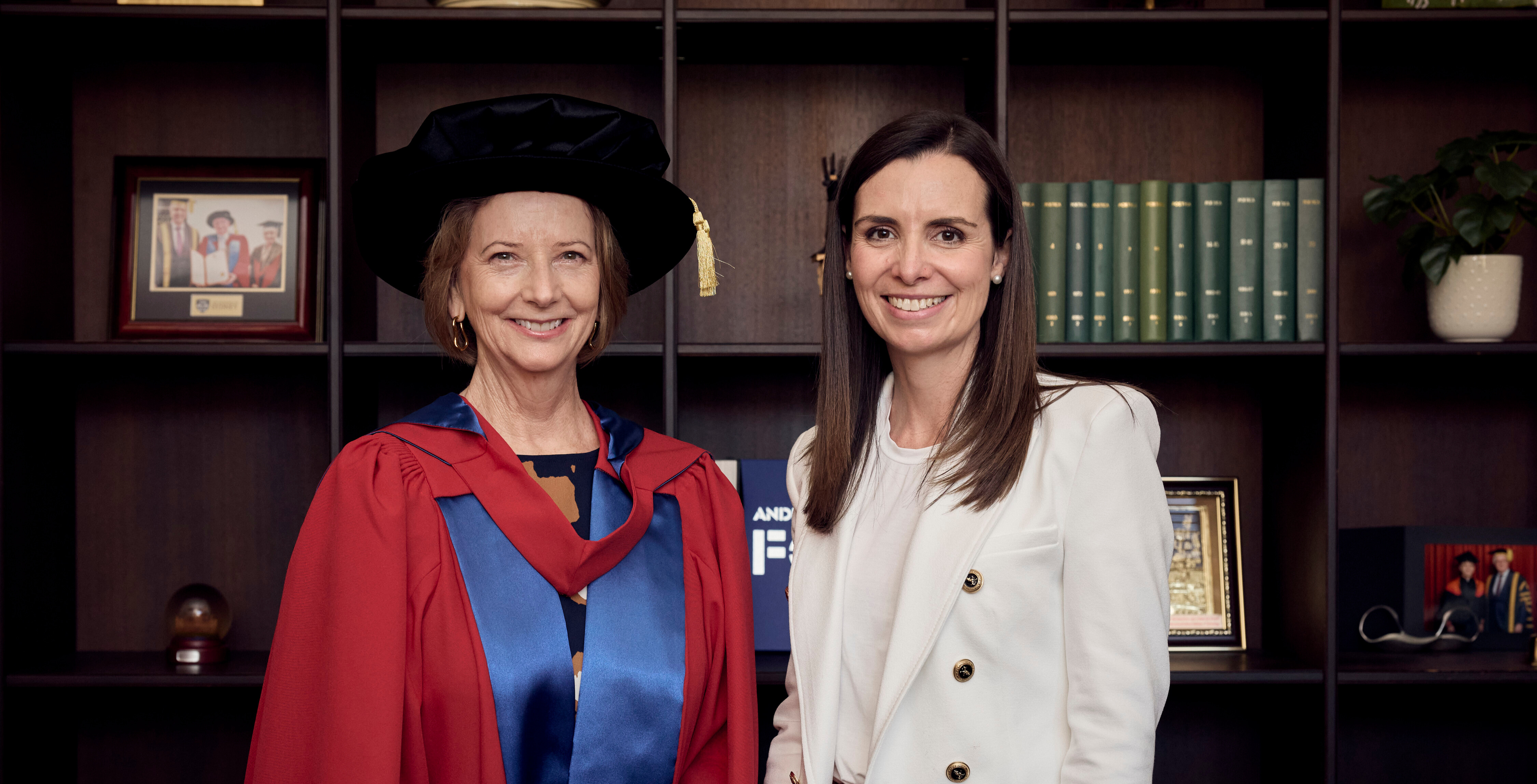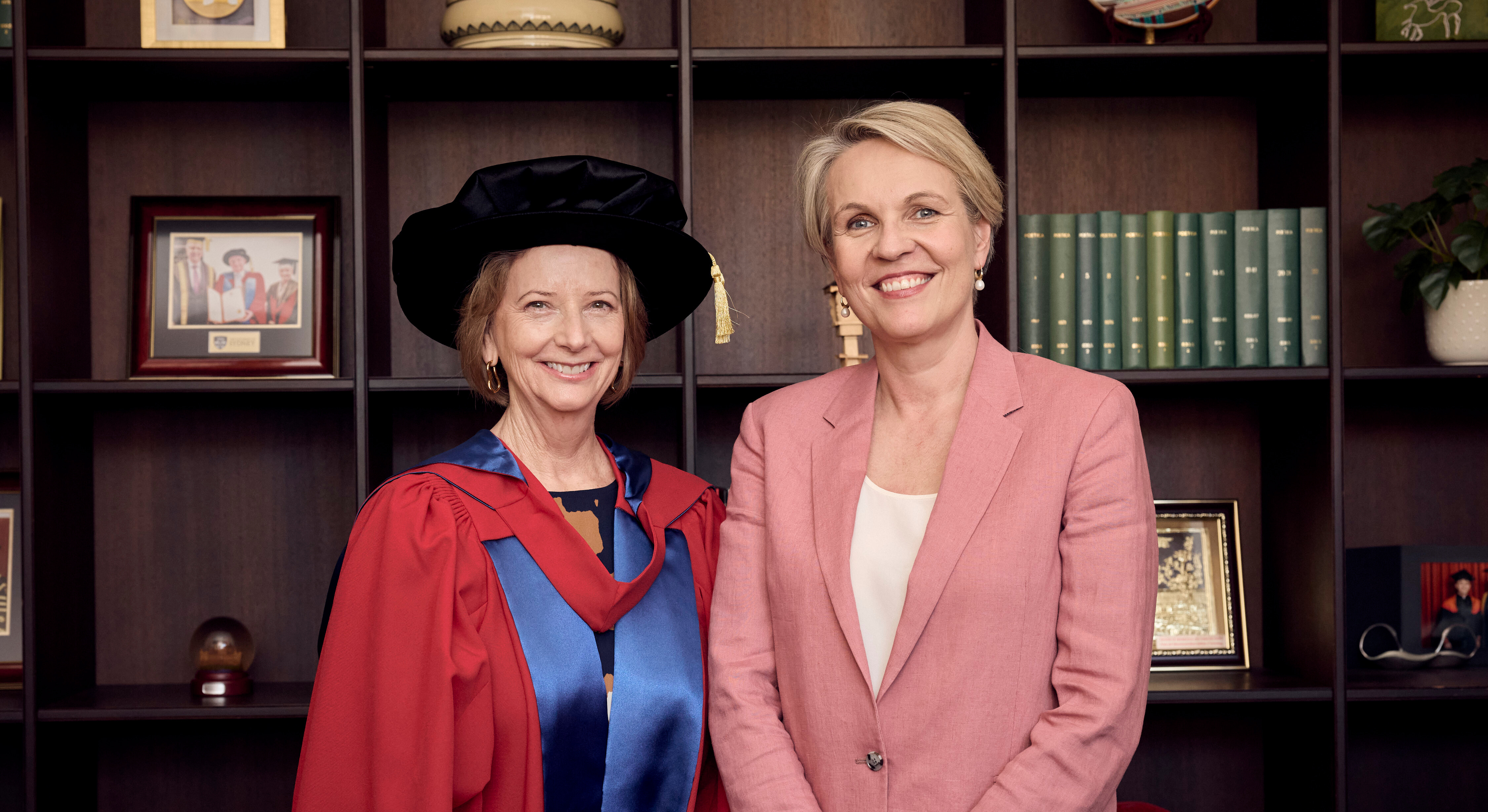The Honourable Julia Gillard AC has been admitted to the degree of Doctor of Letters (honoris causa) by the University of Sydney.
The former prime minister received the award at a ceremony on Wednesday, October 15 in recognition of her distinguished career in law and politics and her ongoing work in the fields of education, mental health and leadership which have had an enduring and transformative impact on Australian society.
The ceremony was presided over by Vice-Chancellor and President, Professor Mark Scott , and Dean of the Faculty of Arts and Social Sciences, Professor Lisa Adkins .
"Today we pay tribute to Julia's lifelong contribution to improving education outcomes for students of all ages," Professor Scott said.
"Her deep commitment to improving preschool to postgraduate education led to the creation of national benchmarks which are still firmly in place.
"Her dedication to equity, fairness and opportunity resulted in transformative reforms which continue to define the educational landscape."
In her address to the cohort, Julia offered her deepest congratulations to everyone who graduated on Wednesday.
"I feel honoured to share this occasion with you and to be recognised by Australia's oldest university, an academic community which has always aspired to pursue - as your motto says - the same learning under new stars," she said.
"To bring the best of the academic traditions of age-old institutions like Oxford and Cambridge but mould them for a different nation under the Southern Cross."
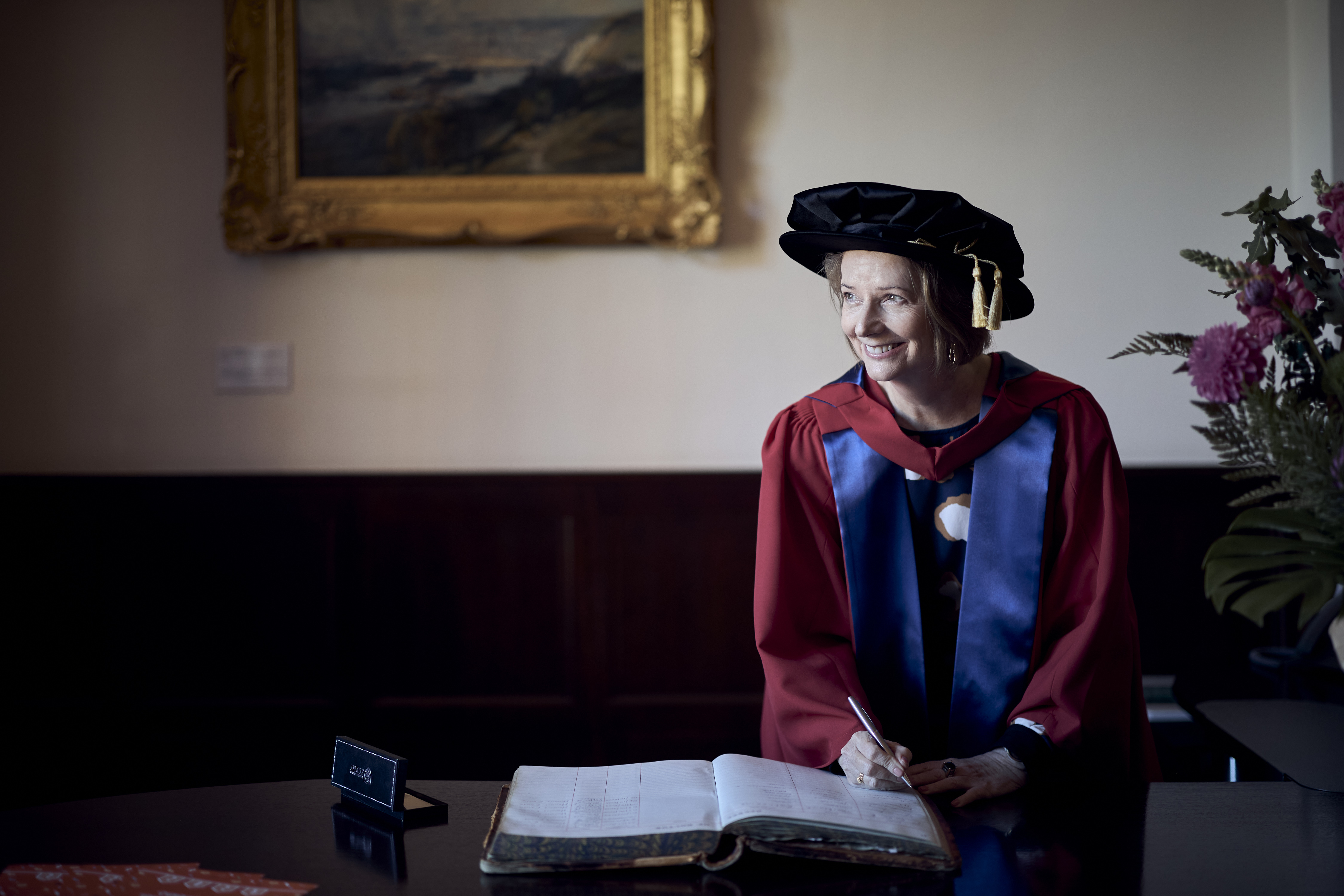
The Hon. Julia Gillard AC was awarded an honorary doctorate on Wednesday, October 15. Photo: University of Sydney / Frankie Tsang
Journey to Parliament House
Born in Wales, Julia migrated to Adelaide with her family in 1966. She began her studies at the University of Adelaide before transferring to the University of Melbourne.
In 1983, she was elected President of the Australian Union of Students, marking the beginning of a lifelong commitment to leadership and advocacy.
After graduating with degrees in Arts and Laws, Julia joined Slater and Gordon, specialising in employment law.
By 29, she had become a partner in the firm, an early sign of her remarkable drive and capability.
In 1996, she transitioned to politics, serving as chief of staff to John Brumby, the Victorian opposition leader at the time.
Two years later she was elected to the House of Representatives for the seat of Lalor.
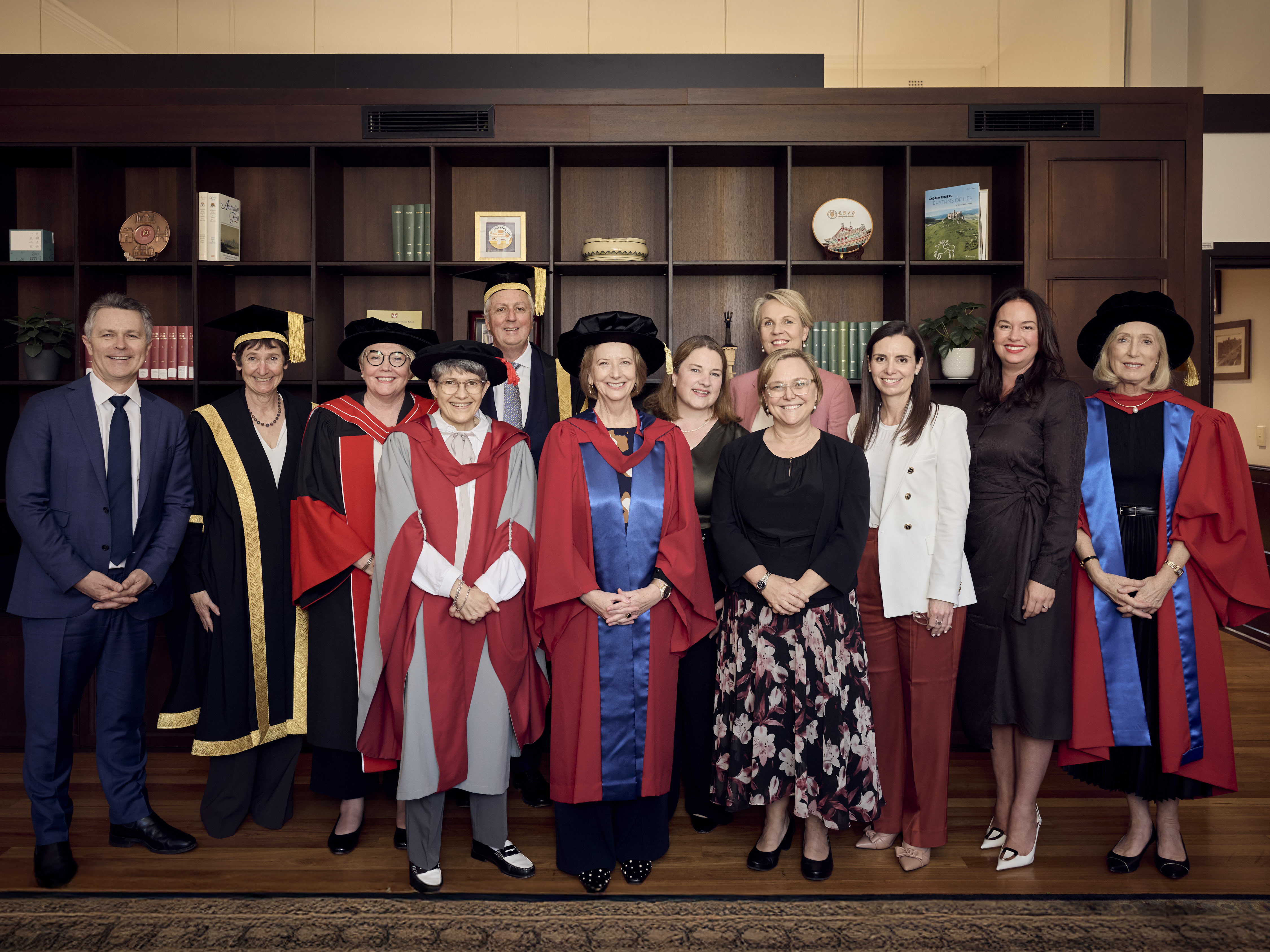
Photo: University of Sydney / Frankie Tsang
Social justice and reform
Julia's parliamentary career was defined by her dedication to social justice and reform.
She held key shadow portfolios before becoming deputy leader of the Australian Labor Party in 2006. Following Labor's landmark 2007 victory, she was appointed Australia's first female deputy prime minister and minister for education, employment and workplace relations, where she led reforms including the national curriculum, NAPLAN and the My School website.
Her commitment to equity in education saw the launch of the Digital Education Revolution program, which provided digital resources for schools, and the Building the Education Revolution program that allocated $16 billion in funding for refurbishments.
She is perhaps best remembered for commissioning a review by David Gonski that recommended a needs-based school funding model and then commencing its implementation. The generational overhaul of secondary and tertiary education funding focused on fairness and opportunity.
On 24 June 2010, Julia Gillard was sworn in as the 27th prime minister of Australia. She is the first and only woman to serve as prime minister. Her leadership during the global financial crisis helped safeguard Australia's economy, while her government introduced major reforms in education, health care, disability support and climate policy.
As part of her commitment to sustainability, she opened the University of Sydney's Centre for Carbon, Water and Food, a state-of-the-art research facility developed to tackle regional food security and the environmental challenges.
She started the nation's first ever national insurance scheme for people with disabilities (NDIS) and began construction of the National Broadband Network.
Julia's 2012 speech confronting sexism and misogyny created worldwide headlines and drew global attention to the issues faced by women in leadership positions. Today, she continues this work as inaugural chair of the Global Institute for Women's Leadership, advocating for inclusive and equitable leadership worldwide.
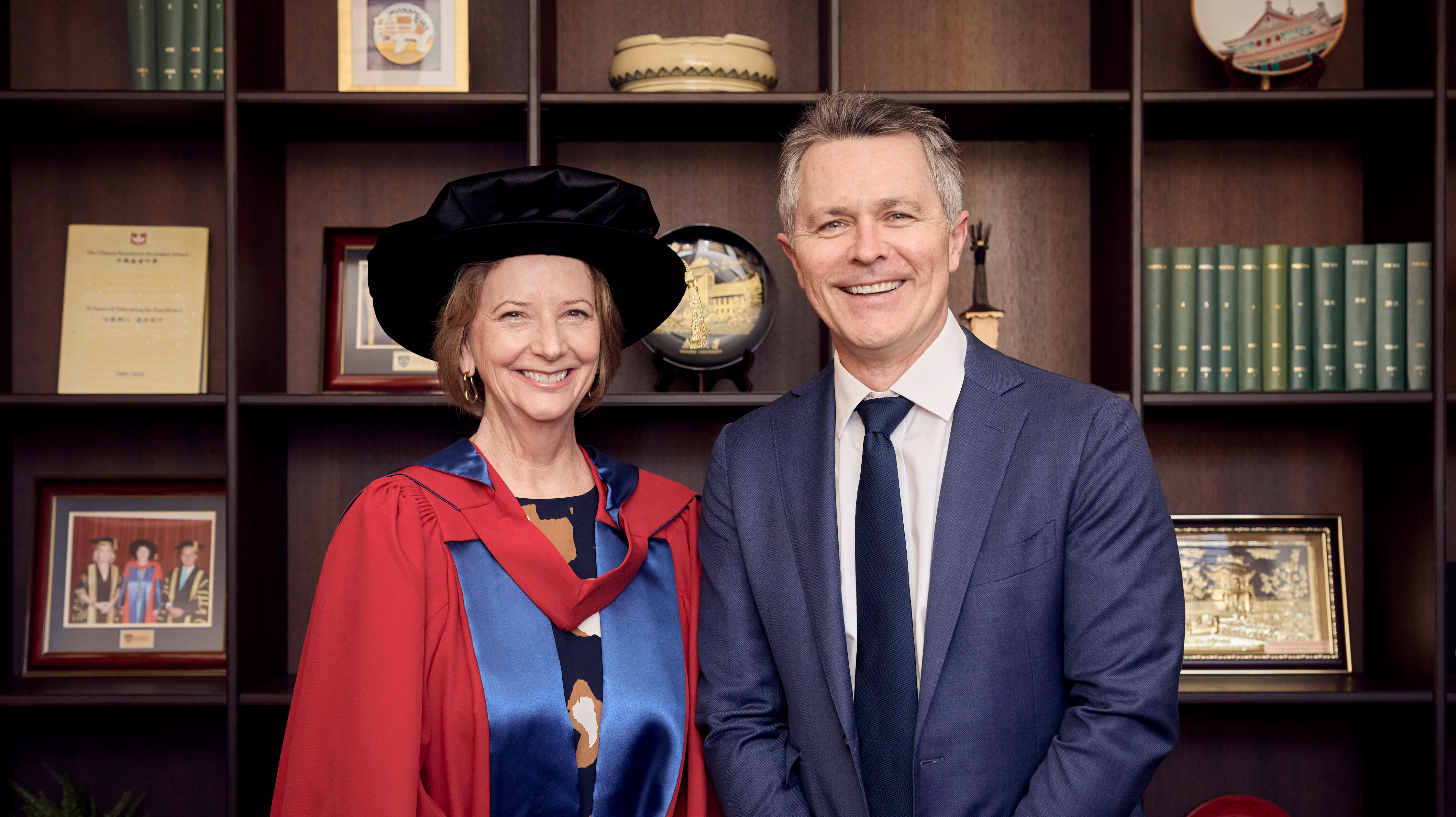
Photo: University of Sydney / Frankie Tsang
Commitment to education
Julia's commitment to education over decades of service in Australian public life is exemplary.
She was chair of the Global Partnership for Education from 2014 to 2021, a leading organisation dedicated to expanding access and quality education worldwide.
She is also patron of the Campaign for Female Education, which addresses poverty and inequality by supporting girls' access and right to quality education, and to empower young women to be changemakers in their communities.
Her post-political career reflects her enduring commitment to public service.
She was chair of Beyond Blue, Australia's leading mental health awareness body, from 2017 to 2023, and has been chair of Wellcome, a global charitable foundation which supports science to solve urgent health challenges, since 2021.
She is a Distinguished Fellow at the Brookings Institution, an Honorary Professor at the University of Adelaide, and was awarded a Companion of the Order of Australia in 2017.
Hero image: Dean of the Faculty of Arts and Social Sciences, Professor Lisa Adkins, Vice-Chancellor and President, Professor Mark Scott, the Hon. Julia Gillard AC and Dean of the Business School, Professor Leisa Sargent.

